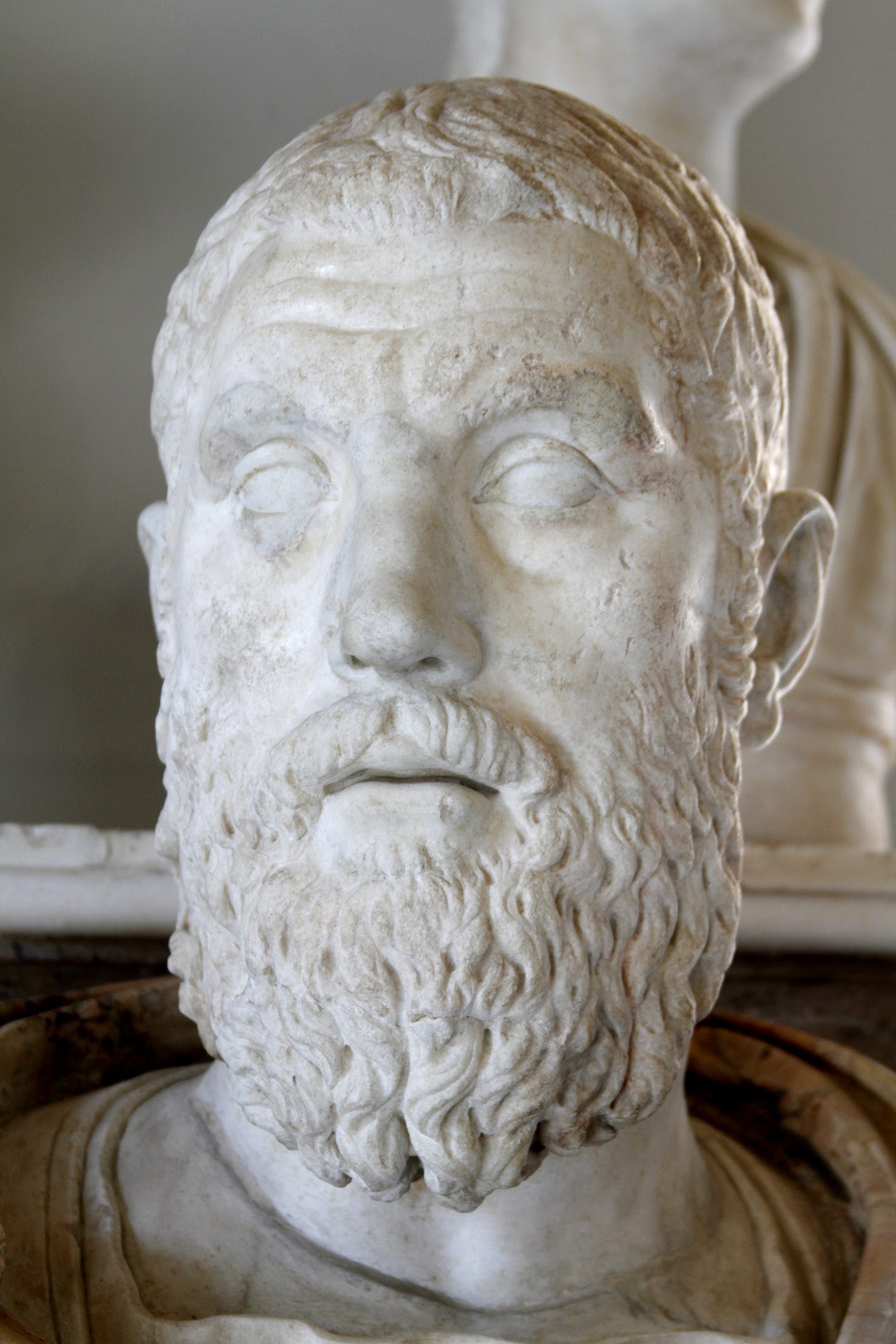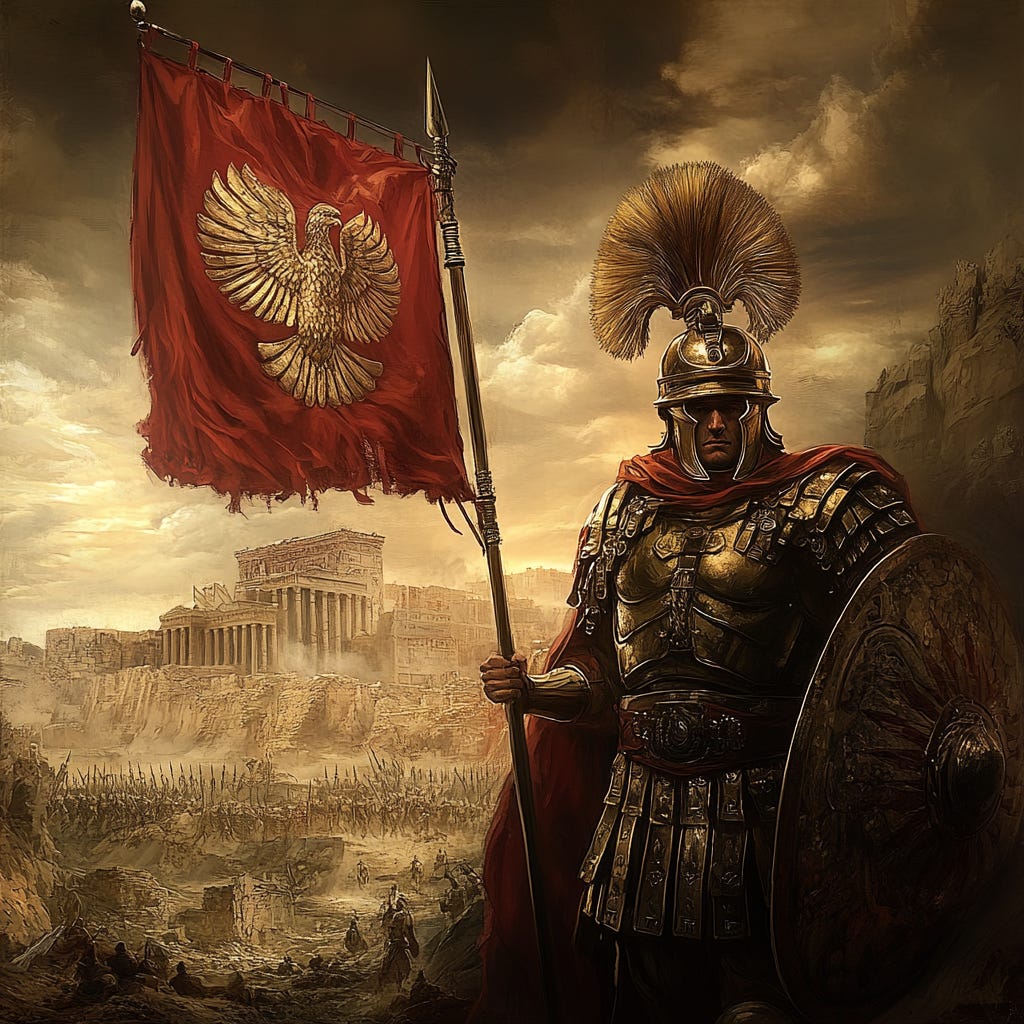NOTE: Plenty of spoilers ahead! Do not read if you are planning to watch the movie and care about plot details.
I approached Ridley Scott’s Gladiator II with considerable apprehension, fearing the extent to which Scott would disregard historical accuracy in favor of crafting a blockbuster fantasy. Following the release of Scott’s 2023 movie, Napoleon, historian Dan Snow highlighted numerous inaccuracies, including the fact that Napoleon did not lead the final charge at Waterloo. Scott dismissed Snow’s concerns, suggesting that he should “get a life,” clearly signaling a lack of regard for historical accuracy.
Nevertheless, Scott must have been sensitive to this issue since for Gladiator II he hired a historical script consultant, Alexander Mariotti, who now identifies as “The Gladiator Historian” and offers expensive “historical tours” to celebrities and wealthy individuals like Bill Gates. Mariotti’s contributions to the movie, however, are severely flawed, as we will soon discover. Moreover, he appears indifferent to the criticism, dismissing academic concerns about historical inaccuracies as “snobbery” while being puzzled by the criticisms, as if maintaining historical accuracy and creating a compelling film are mutually exclusive.
“What Ridley does is no different to Shakespeare or Michelangelo,” continued Mariotti in an interview with the BBC. Hmm, as my Neapolitan grandmother would have said, let’s not confuse chocolate and crap just because they share the same color. “It’s about using history to tell a story and teach us a lesson,” Mariotti explained, though we’re never explicitly told what the lesson is. “Total Hollywood bullshit,” was the straightforward assessment of the movie by Shadi Bartsch, a classics professor at the University of Chicago.
Gladiator II takes place around 196 CE, approximately 16 years after the death of Marcus Aurelius and the events of the first movie. The protagonist is Lucius Verus Aurelius (played by Paul Mescal), the grandson of Marcus Aurelius and the son of the (fictional) Maximus Decimus Meridius, portrayed in Gladiator I by Russell Crowe. The co-emperors in charge are Caracalla (188-217 CE) and his brother, Geta (189-211 CE). It’s important to note that in reality the two brothers died several years apart, which is one of the many inaccuracies in the movie.
Another significant character is Lucilla (148-182 CE), one of Marcus Aurelius’s daughters and an elder sister to Commodus, Marcus’s son who played a major role in Gladiator I, then portrayed by Joaquin Phoenix. Pedro Pascal (also known as The Mandalorian) portrays General Acacius, Lucilla’s husband. Denzel Washington delivers a captivating performance as the cunning Macrinus, a former slave who owns a school of gladiators where Lucius Verus ends up after his capture following the fall of the city of Numidia. Derek Jacobi reprises his role as Gracchus, a member of the Senate who opposed Commodus’s rule in the previous movie. It’s perplexing why such a renowned actor was given only a brief screen time.

From a historical perspective, the movie is a complete disaster. For those interested, I’ve included at the end a list detailing numerous errors and blunders. Regrettably, Scott has already announced a sequel to the sequel: Gladiator III. If produced, it would follow Lucius’s journey as he attempts to dismantle the empire and restore the Republic. However, this never occurred, and the real Lucius passed away years before the events of Gladiator II. Consequently, we would be entering the realm of pure alternative history, even though I’m confident there won’t be a disclaimer to warn viewers accordingly.
Keep reading with a 7-day free trial
Subscribe to The Philosophy Garden: Stoicism and Beyond to keep reading this post and get 7 days of free access to the full post archives.




